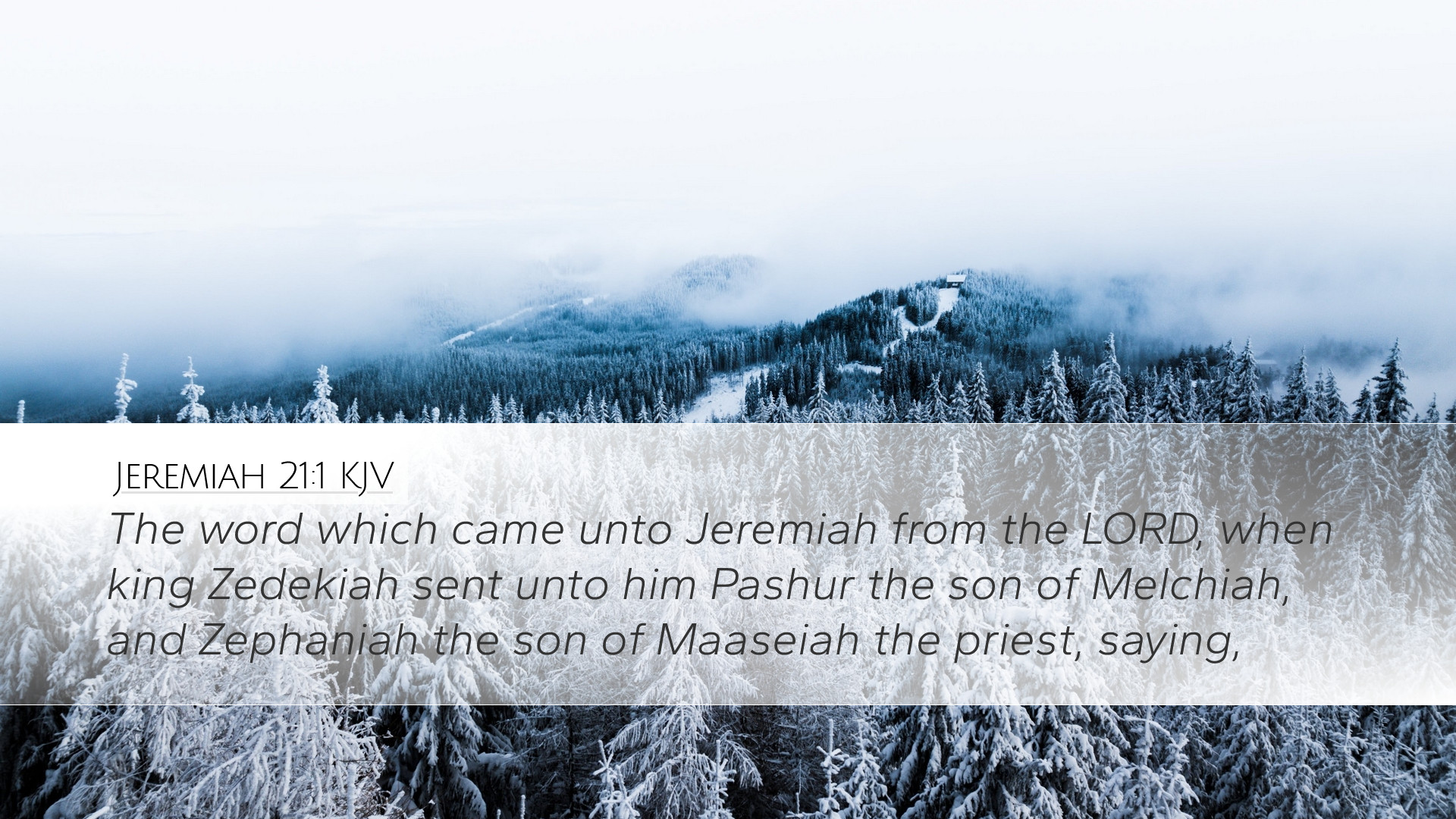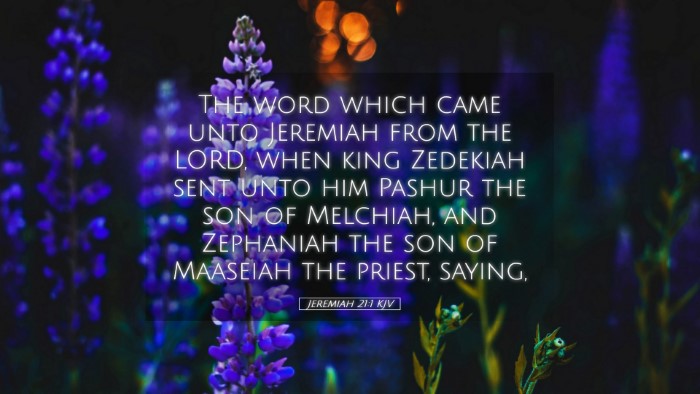Commentary on Jeremiah 21:1
The verse Jeremiah 21:1 states: “The word which came unto Jeremiah from the Lord, when king Zedekiah sent unto him Pashur the son of Melchiah and Zephaniah the son of Maaseiah the priest, saying,” (KJV). This verse serves as a prelude to a significant communication from God, positioned within the historical context of Judah's impending doom.
Historical Context
To understand the weight of this message, we must consider the time in which it was given. Jeremiah prophesied during the reign of Zedekiah, the last king of Judah, a period marked by turmoil and strife as Jerusalem faced the looming threat of Babylonian invasion. This context is essential for comprehending the anxiety and desperation that prompted Zedekiah to seek Jeremiah’s counsel.
King Zedekiah
Zedekiah was a ruler who struggled between faithfulness to God and the pragmatism required by political circumstances. Scholars like Matthew Henry note that Zedekiah’s reign was plagued by indecision and fear, leading him to attempt alliances even as he received prophetic warnings of God’s judgment through Jeremiah.
The Messengers
The choice to send Pashur and Zephaniah reflects the seriousness of Zedekiah's plight. Albert Barnes points out that Pashur represents a priestly line while Zephaniah, the son of Maaseiah, is likely a Levite. This suggests a desperate attempt to seek divine insight through religious authority, indicating the depth of Zedekiah's crisis.
Jeremiah's Role
Jeremiah’s function as a prophet is central to this verse. Adam Clarke underscores that receiving the word from the Lord signifies the prophet’s vital role as a mediator between God and the people during a time of judgment. This illustrates the importance of divine communication in moments of national despair.
The Word of the Lord
The phrase “the word which came unto Jeremiah” reinforces the immediacy and authority of the message to follow. Matthew Henry discusses the theological implication that God's word is timeless and powerful, suggesting that even in times of severe trial, God is not silent but actively engages with humanity.
Theological Implications
Various theological insights can be drawn from this simple yet profound verse. It reflects God's sovereignty over nations and individual rulers; even the highest authorities must submit to His will.
- Divine Sovereignty: The fact that God speaks through Jeremiah may denote His sovereign control over history. Zedekiah's inquiry illustrates the humility that must accompany human leadership in facing divine judgment.
- God's Faithfulness: Even in the face of impending judgment, God's communication signifies His ongoing relationship with His people. It shows that God desires repentance and transformation rather than mere punishment.
- Prophetic Authority: Jeremiah's role reminds scholars and leaders of the vital need for prophetic voices in society. The Church is called to uphold truth amidst falsehood, offering insight rooted in scripture.
Applications for Today
As contemporary pastors, students, and theologians engage with Jeremiah 21:1, several applications arise:
- Seek Divine Guidance: Just as Zedekiah turned to Jeremiah, modern leaders should prioritize prayer and seek God’s guidance in decision-making processes.
- Embrace Prophetic Voice: The Church must embrace the prophetic tradition, ensuring that Scripture is central to its teachings and that it speaks against injustices in society.
- Trust in God’s Justice: In times of crisis, believers should remember God’s sovereignty and trust His plans, understanding that His timing and methods may differ from human expectations.
Conclusion
In conclusion, Jeremiah 21:1 invites deep reflection on the relationship between God, leadership, and prophecy. The historical context of Jeremiah's prophetic ministry serves as a reminder of God's active involvement in human affairs, encouraging us to listen and respond to the divine word in our lives today. As we reflect on this text, may we be inspired to seek wisdom from the Scriptures and uphold the principles of faith amidst uncertainty.


